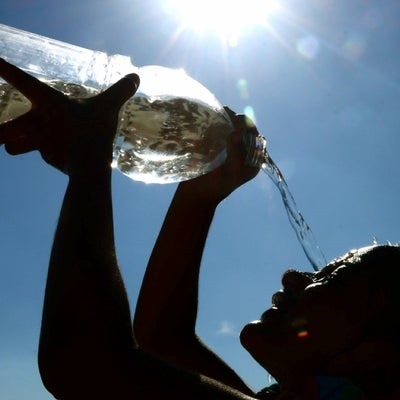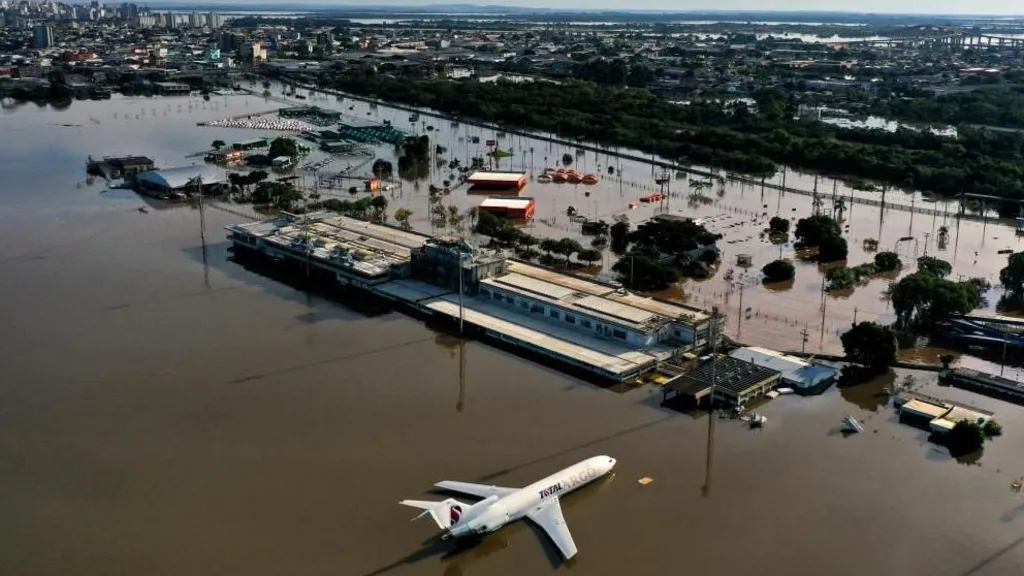Uganda experiences unusual heatwave despite the rains

Uganda, traditionally known for its lush green landscapes during the rainy season, finds itself under the unexpected grip of a scorching heatwave.
Despite the anticipation of rain, many regions across the country are experiencing unusually high temperatures with 29°C as of today 14th/03/2024 leaving residents and authorities puzzled.
The onset of the long rainy season, which typically begins in March, was eagerly awaited by farmers and communities reliant on agriculture.
However, instead of the anticipated relief from the heat, Ugandans have been confronted with prolonged periods of sweltering weather.
In regions such as Kampala, Masaka, and Jinja, temperatures have soared well above the seasonal average, with some areas recording daytime highs exceeding 35 degrees Celsius.
The oppressive heat has made daily life challenging for many, particularly those engaged in outdoor activities or working in non-air-conditioned environments.
"This level of heat is unprecedented for this time of the year," said Sarah Namugenyi, a resident of Kampala.
"We were expecting the rains to cool things down, but it feels like the opposite is happening."
The unexpected weather phenomenon has prompted speculation among meteorologists and climate scientists.
While weather patterns can be inherently variable, several factors may be contributing to the current heatwave.
One possibility is the delayed onset of the rainy season, a phenomenon observed in previous years.
The prolonged dry spell has allowed temperatures to climb unchecked, exacerbating the heatwave's intensity.
Additionally, experts point to the broader influence of climate change, which has been linked to shifts in weather patterns globally.
Rising temperatures and alterations in precipitation regimes may be contributing to the unseasonably hot conditions experienced in Uganda.
Local climate influences, such as geography and elevation, may also play a role in exacerbating the heatwave's impact in certain regions.
Urban areas, with their concrete infrastructure and limited green spaces, tend to experience higher temperatures due to the urban heat island effect.
Authorities are urging residents to take precautions to stay safe during the heatwave, including staying hydrated, seeking shade, and avoiding prolonged exposure to the sun.
Vulnerable populations, such as the elderly and young children, are particularly at risk and are advised to take extra precautions.
As Ugandans grapple with the unexpected heatwave, meteorological agencies continue to monitor weather patterns closely.
While relief in the form of rainfall is eagerly awaited, the current situation serves as a reminder of the complex and dynamic nature of Uganda's climate.
In the face of uncertainty, communities are banding together to support one another and adapt to the challenges posed by the unrelenting heat.
With resilience and resourcefulness, Ugandans are navigating through this unprecedented weather event, hopeful for the return of cooler temperatures and the much-needed rains of the rainy season.
Uganda generally experiences two rainy seasons and two dry seasons throughout the year, although the timing and intensity can vary across different regions of the country:
Long Rainy Season (March to May): This is also known as the "first rainy season" or the "major rainy season."
During this period, most parts of Uganda receive significant rainfall, which helps in agricultural activities such as planting crops.
Dry Season (June to August):
Following the long rainy season, Uganda typically experiences a dry period characterised by less rainfall.
However, some regions might still receive sporadic showers during this time.
Short Rainy Season (September to November): Also referred to as the "second rainy season" or the "minor rainy season," this period sees another increase in rainfall, albeit generally less intense compared to the long rainy season.
Dry Season (December to February):
The dry season resumes towards the end of the year and into the beginning of the next, with lower rainfall amounts and relatively drier conditions.












